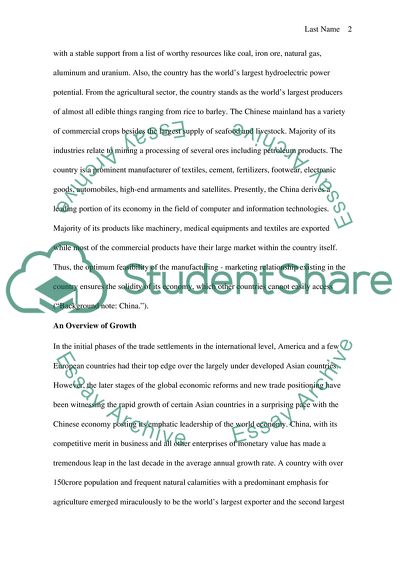Cite this document
(“The Chinese Economy in the Conditions of Globalization Research Paper”, n.d.)
The Chinese Economy in the Conditions of Globalization Research Paper. Retrieved from https://studentshare.org/macro-microeconomics/1770654-to-what-extent-can-globalization-undermine-chinese-authority-when-acting-its-peoples-interests
The Chinese Economy in the Conditions of Globalization Research Paper. Retrieved from https://studentshare.org/macro-microeconomics/1770654-to-what-extent-can-globalization-undermine-chinese-authority-when-acting-its-peoples-interests
(The Chinese Economy in the Conditions of Globalization Research Paper)
The Chinese Economy in the Conditions of Globalization Research Paper. https://studentshare.org/macro-microeconomics/1770654-to-what-extent-can-globalization-undermine-chinese-authority-when-acting-its-peoples-interests.
The Chinese Economy in the Conditions of Globalization Research Paper. https://studentshare.org/macro-microeconomics/1770654-to-what-extent-can-globalization-undermine-chinese-authority-when-acting-its-peoples-interests.
“The Chinese Economy in the Conditions of Globalization Research Paper”, n.d. https://studentshare.org/macro-microeconomics/1770654-to-what-extent-can-globalization-undermine-chinese-authority-when-acting-its-peoples-interests.


